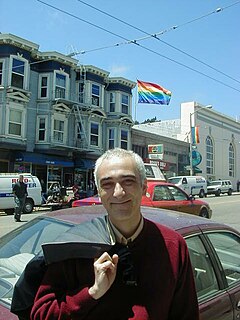 W
WMiguel Vale de Almeida is a Portuguese, anthropologist, LGBT activist, and professor at the Instituto Superior de Ciências do Trabalho e da Empresa (ISCTE) in Lisbon. He is the current editor-in-chief of the journal Etnográfica and member of CEAS-ISCTE and APA. He was Visiting Professor Dept of Anthropology and Latin American Studies’ Center, University of Chicago in the spring of 2006. As a LGBT activist, he is known in Portugal for participating in LGBT rights events, including several appearances on LGBT debates in television.
 W
WIgnacio Baleztena Ascárate was a Navarrese folk customs expert, a Carlist politician and soldier
 W
WKeith Hamilton Basso was a cultural and linguistic anthropologist noted for his study of the Western Apaches, specifically those from the community of Cibecue, Arizona. Basso was professor emeritus of anthropology at the University of New Mexico and earlier taught at the University of Arizona and Yale University.
 W
WAndrei Ivanovich Bogdanov was one of the first Russian bibliographers and ethnographers.
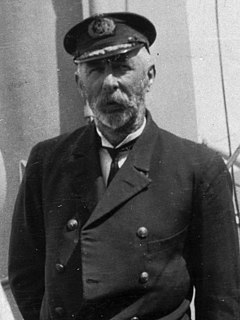 W
WJohn Peter Bollons was a New Zealand marine captain, naturalist and ethnographer. For many years he captained New Zealand government steamers, including the NZGSS Hinemoa, which undertook lighthouse work and patrols through New Zealand's subantarctic islands. Bollons Island, in the Antipodes Islands, is named after him. In 1928 he was appointed a Companion of the Imperial Service Order.
 W
WAnvar Chingizoglu is an Azerbaijani historian, ethnologist and genealogist who mostly specialized in the history and genealogies of medieval Azerbaijan, Iran and the Ottoman Empire.
 W
WRobert Henry Codrington was an Anglican priest and anthropologist who made the first study of Melanesian society and culture. His work is still held as a classic of ethnography.
 W
WAntônio Gonçalves Dias was a Brazilian Romantic poet, playwright, ethnographer, lawyer and linguist. A major exponent of Brazilian Romanticism and of the literary tradition known as "Indianism", he is famous for writing "Canção do exílio", the short narrative poem I-Juca-Pirama, the unfinished epic Os Timbiras, and many other nationalist and patriotic poems that would award him posthumously with the title of national poet of Brazil. He was also an avid researcher of Native Brazilian languages and folklore.
 W
WGeorge Amos Dorsey was an American ethnographer of indigenous peoples of the Americas, with a special focus on the Caddoan and Siouan tribes of the Great Plains. He is credited with helping develop the anthropology of the Plains Indian tribes while serving as curator at the Field Museum in Chicago from 1898 until 1915. During this period, he also was Professor of Anthropology at the University of Chicago from 1907 to 1915.
 W
WConstance Goddard DuBois was an American novelist and an ethnographer, writing extensively between 1899 and 1908 about the native peoples and cultures of southern California.
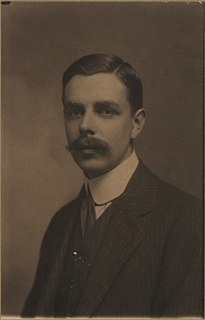 W
WIvor Hugh Norman Evans (1886–1957) was a British anthropologist, ethnographer and archaeologist who spent most of his working life in peninsular British Malaya and in North Borneo.
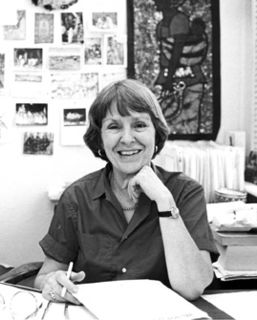 W
WElizabeth Warnock Fernea was an influential writer and filmmaker who spent much of her life in the field producing numerous ethnographies and films that capture the struggles and turmoil of African and Middle Eastern cultures. Her husband, the anthropologist Robert A. Fernea, was a large influence in her life. Fernea is commonly regarded as a pioneer for women in the field of Middle East Studies.
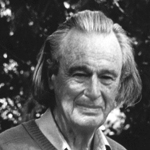 W
WJohn Derek Freeman was a New Zealand anthropologist known for his criticism of Margaret Mead's work on Samoan society, as described in her 1928 ethnography Coming of Age in Samoa. His attack "ignited controversy of a scale, visibility, and ferocity never before seen in anthropology."
 W
WMary Eliza Isabella Frere (1845–1911) was an English author of works regarding India. In 1868 Frere published the first English-language field-collected book of Indian storytales, Old Deccan Days.
 W
WNina Gagen-Torn was a Russian and Soviet poet, writer, historian and ethnographer.
 W
WNikolai Mikhailovich Girenko was an ethnologist and human rights activist.
 W
WIda Halpern was a Canadian ethnomusicologist.
 W
WKarl Eduard Robert Hartmann was a German naturalist, anatomist and ethnographer.
 W
WSir Apollo Kagwa (1864–1927) was a major intellectual and political leader in Uganda when it was under British rule. He was a leader of the Protestant faction and was appointed prime minister (Katikkiro) of the Kingdom of Buganda by King Mwanga II in 1890. He served until 1926. Kagwa served as regent from 1897 until 1914 when the infant King Daudi Chwa came of age. He was Buganda's first and foremost ethnographer.
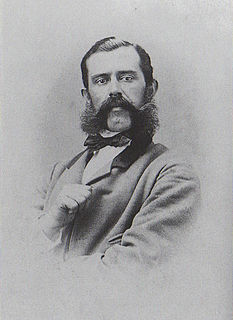 W
WFelix Philipp Kanitz was an Austro-Hungarian naturalist, geographer, ethnographer, archaeologist, painter and author of travel notes, of Jewish heritage.
 W
WBradford Keeney, Ph.D. is a creative therapist, cybernetician, anthropologist of cultural healing traditions, improvisational performer, and spiritual healer. Bradford Keeney has served as a professor, founder, and director of clinical doctoral programs in numerous universities. He is the originator of several orientations to psychotherapy including improvisational therapy, resource focused therapy, and creative therapy. He is the inventor of recursive frame analysis, a research method that discerns patterns of transformation in conversation. A Clinical Fellow of the American Association for Marriage and Family Therapy, he received the 2008 Distinguished Lifetime Achievement Award from the Louisiana Association for Marriage and Family Therapy.
 W
WMongush Borakhovitch Kenin-Lopsan born April 10, 1925 at Chash-Tal, Tuva, Chöön-Khemtchik district out of family of Bora-Khöö. Kenin-Lopsan is a writer, poet, historian, archaeologist and famous Tuvan shamanism researcher and lider living in Kyzyl, the capital of Tuva, Russian Federation.
 W
WHranush Kharatyan is an Armenian ethnographer. She also specializes in Caucasus studies, minority groups and Armenian studies. She has been a member of the Pre-Parliament civil initiative since November 2012.
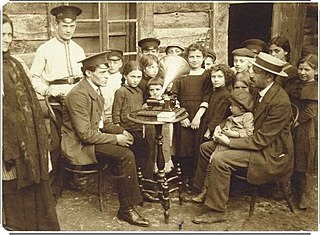 W
WSusman Kiselgof was a Russian-Jewish folksong collector and pedagogue associated with the Society for Jewish Folk Music in St. Petersburg. Like his contemprary Joel Engel, he conducted fieldwork in the Russian Empire to collect Jewish religious and secular music. Materials he collected were used in the compositions of such figures as Joseph Achron, Lev Pulver, and Alexander Krein.
 W
WRuth Landes was an American cultural anthropologist best known for studies on Brazilian candomblé cults and her published study on the topic, City of Women (1947). Landes is recognized by some as a pioneer in the study of race and gender relations.
 W
WJulien Michel Leiris was a French surrealist writer and ethnographer. Part of the Surrealist group in Paris, Leiris became a key member of the College of Sociology with Georges Bataille and head of research in ethnography at the CNRS.
 W
WLuis Dionisio de Lezama Leguizamón y Sagarminaga (1865-1933) was a Spanish entrepreneur, Vascologist and politician. As a businessman he kept developing the family-owned mining conglomerate, which controlled part or iron ore, carbon, fluorite, anhydrite and plaster exploitation in Vascongadas and Asturias. As a linguist he was a longtime executive of Sociedad de Estudios Vascos, owned one of the largest collections of Basque literature and contributed few scientific works himself. As a politician he supported the Traditionalist cause, first as a Carlist, in 1919-1931 as a breakaway Mellista, and then again as a Carlist; in the early 1930s he held the provincial party jefatura in Biscay.
 W
WJohn William Lindt (1845–1926), was a German-born Australian landscape and ethnographic photographer, early photojournalist, and portraitist.
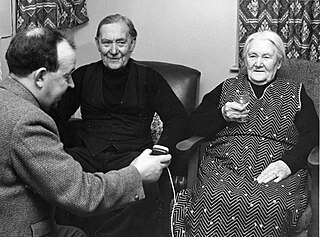 W
WCalum Iain Maclean, was a Scottish folklorist, collector, ethnographer and author.
 W
WFr. Emmanuel Magri, S.J. was a Maltese ethnographer, archaeologist and writer.
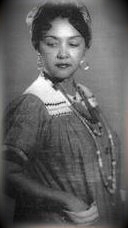 W
WLina Mathon-Blanchet was an Afro-Haitian pianist, music teacher and composer. First director of the Conservatoire National, she was interested in Haiti's folkloric traditions and was one of the first performers to include Vodou-influenced theatrical performances on the public stage in the country. Founding several folkloric troupes, she led her artists on tours throughout the United States and was noted as a teacher and mentor to many prominent Haitian performers. Trained in classical music traditions she collected traditional songs documenting the lyrics, melodies, and rhythms found as traditional themes in Haitian music. She is widely recognized as one of the most influential figures in the development of music in Haiti in the twentieth-century.
 W
WAlfred Métraux was a Swiss and Argentine anthropologist, ethnologist and human rights leader.
 W
WTeréza Nováková, née Lanhausová was a Czech feminist author, editor, and ethnographer.
 W
WSergey Fyodorovich Oldenburg was a Russian orientalist who specialized in Buddhist studies. He was a disciple of Ivan Minayev, the founder of Russian Indology.
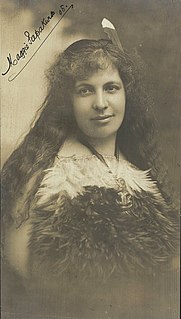 W
WMargaret Pattison Staples-Browne, often known as Maggie Papakura or Mākereti Papakura, was a New Zealand guide, entertainer and ethnographer. Of Pākehā and Māori descent, she was of Te Arawa and Tūhourangi iwi.
 W
WMary Pattillo is Harold Washington Professor of Sociology and African American Studies at Northwestern University. As of 2016, she has served as Director of Undergraduate Studies in African American Studies and has been a Faculty Associate in Northwestern's Institute for Policy Research since 2004. She has formerly served as chair of the Northwestern University Department of Sociology.
 W
WFaina Petryakova - was a distinguished professor of the Lviv Academy of Arts, a recognized figure in the field of ethnography in Ukraine and beyond, and a senior researcher of the Institute of Ethnography at the Lviv branch office of the National Academy of Sciences of Ukraine.
 W
WEster Plicková was a Slovak ethnographer and photographer with a specialty in folk pottery. Working as an ethnographer, lecturer and professional photographer, Plicková documented and researched folk culture and crafts. She received the Gold Medal of Ľudovíta Štúra in 1988 for her work to preserve and conserve Slovak folk culture.
 W
WSergei Ivanovich Rudenko was a prominent Soviet anthropologist and archaeologist who discovered and excavated the most celebrated of Scythian burials, Pazyryk in Siberia.
 W
WBernardino de Sahagún was a Franciscan friar, missionary priest and pioneering ethnographer who participated in the Catholic evangelization of colonial New Spain. Born in Sahagún, Spain, in 1499, he journeyed to New Spain in 1529. He learned Nahuatl and spent more than 50 years in the study of Aztec beliefs, culture and history. Though he was primarily devoted to his missionary task, his extraordinary work documenting indigenous worldview and culture has earned him the title as “the first anthropologist." He also contributed to the description of the Aztec language Nahuatl. He translated the Psalms, the Gospels, and a catechism into Nahuatl.
 W
WMoshe Shalit, also Moses, Moyshe, Moishé, Moïsé Salitas, Szalit, משה שאליט [b. December 22, 1885, Vilna, Russia, d. July 19, 1941, Wilno, Poland ], was a researcher, journalist, essayist, ethnographer, and humanist of the inter-war period.
 W
WGalina Vasilyevna Starovoitova was a Soviet dissident, Russian politician and ethnographer known for her work to protect ethnic minorities and promote democratic reforms in Russia. She was shot to death in her apartment building.
 W
WFriedrich Gottlieb Stebler was a Swiss agriculturalist and ethnographer.
 W
WOtto Stoll was a Swiss linguist and ethnologist.
 W
WRonald Toshiyuki Takaki was an American academic, historian, ethnographer and author. He was born in Oahu, Hawaii, and his work addresses stereotypes of Asian Americans, such as the model minority concept.
 W
WChuner Mikhailovich Taksami was a Russian ethnographer of Nivkh origin and had a Doctor of Historical Sciences attained in 1955.
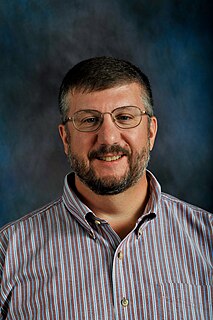 W
WJohn Willis Traphagan is Professor of Human Dimensions of Organizations, Religious Studies, and Anthropology and Mitsubishi Heavy Industries Fellow at the University of Texas at Austin. Traphagan's research has largely focused on rural Japan, with most of his research conducted in Iwate Prefecture. He has published extensively on science and culture, aging, health, and life in rural Japan. In the late 2000s, he developed a second stream of research focused on the culture and ethics of space exploration. In 2010 he was elected Secretary General of the Japan Anthropology Workshop, the world's largest organization of anthropologists working on Japan, serving until 2014. Traphagan also serves on the Advisory Council of METI International and the Advisory Board of the College of Fine Arts, Humanities, and Social Sciences at the University of Massachusetts Lowell.
 W
WFrance Winddance Twine is an American sociologist, documentary filmmaker, a visual artist and an enrolled citizen of the Muskogee Creek Nation of Oklahoma. A native of Chicago, she is the granddaughter of Paul Twine, Sr., a Civil Rights activist and founding member of the Catholic Interracial Council of Chicago, a Civil Rights organization that brought Irish, Italian, German, Polish and Black Catholics together to fight for racial justice. Dr. Twine is a Professor of Sociology at the University of California at Santa Barbara where she regularly teaches courses on race, gender and class inequality, sociology of the body, sociology of work, girlhood, assisted reproductive technologies and qualitative research methods.
 W
WJulio de Urquijo e Ibarra, Count of Urquijo (1871-1950), in Basque self-styled as Julio Urkixokoa, was a Basque linguist, cultural activist, and a Spanish Carlist politician. As a Traditionalist deputy he twice served in the Cortes, during the terms of 1903-1905 and 1931-1933, though the climax of his political activity fell on the late Restoration period. As a scientist he was the moving spirit behind settting up numerous vascologist institutions, especially Revista Internacional de Estudios Vascos (1907) and Sociedad de Estudios Vascos (1918). Himself he specialized in Basque paremiology and bibliography. He opposed academy-driven unification of Basque dialects and preferred to wait until standard Basque emerges naturally.
 W
WStefan or Stjepan Ilija Verković was a 19th-century Bosnian ethnographer and folklorist. Born to Bosnian Croat parents, he identified as South Slav and initially he supported the Serbian and later the Bulgarian national cause.
 W
WBoris Vildé was a linguist and ethnographer at the Musée de l'Homme, in Paris, France. He specialised in polar civilizations. He was born in St. Petersburg into a family of Eastern Orthodox Russians. When his father died, his mother moved with him to her family estate in Yastrebino. Because of the Russian Revolution, the family then moved to Tartu, Estonia in 1919. He studied first at the high school and then at the University of Tartu, where he did not complete his courses but learned the German language and some notions of chemistry. He also acquired a taste for literature and poetry and moved to Germany in 1930 hoping for a literary career there. In 1933, as a militant against Nazism, he felt unsafe in Germany and moved to France.
 W
WEduards Volters (1856–1941) was a linguist, ethnographer, archaeologist who studied the Baltic languages and culture. He was a long-time professor at the Saint Petersburg University (1886–1918) and Vytautas Magnus University (1922–1934).
 W
WShoqan Shynghysuly Walikhanov, given name Muhammed Qanafiya was a Kazakh scholar, ethnographer, historian and participant in The Great Game. He is regarded as the father of modern Kazakh historiography and ethnography. The Kazakh Academy of Sciences is named after him. His name is written Chokan Valikhanov in English based on the transliteration of the Russian spelling of his name, which he used himself.
 W
WClark David Wissler was an American anthropologist.